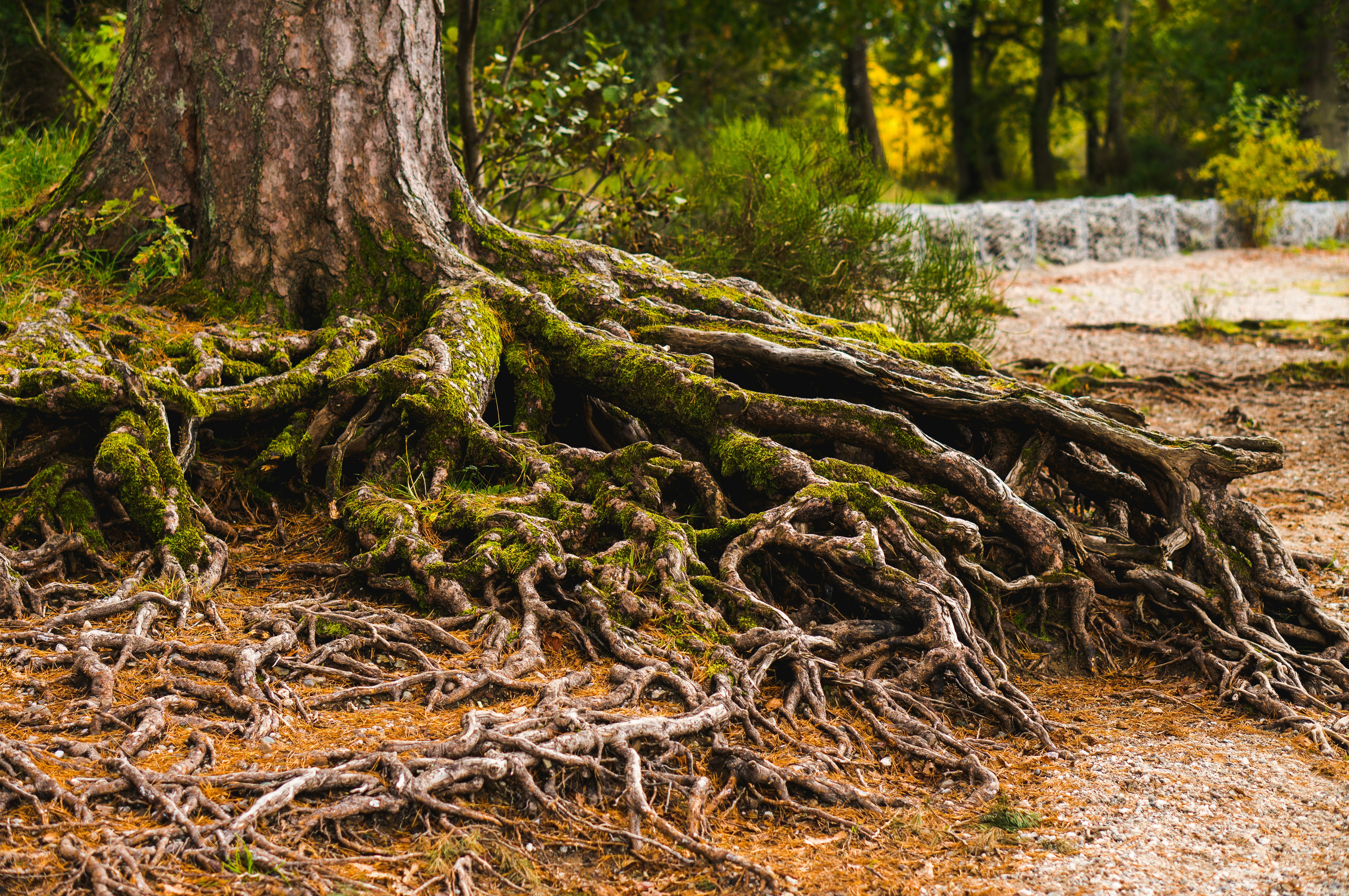Loneliness is an illusion; no one is ever truly alone.
I say this as someone who used to feel lonely most of the time. Even when I’m home with my spouse, even when I’m out with friends, in my heart I felt separate, as if locked behind an invisible wall. The reasons for this are many, and they don’t need to be listed here. The important point is that although for most of my life feelings of isolation plagued me, I now know that I am never alone. At all times, I am intimately connected with another being.
Who is that being? My own body.
Other pieces on this site explain the history and concepts that led to this sense of being in relationship with the organism that gives me life. Today, I want to offer an allegory that will show—I hope—why I now feel held and loved and held by my body. The following story is meant to be read as a folk legend, though it’s one that came to me recently, in the middle of the night.
Early one morning a peasant leaves his cottage to hunt game in the woods. Carrying his bow and arrows, he sits on a stump at the edge of the forest and waits for game. None appears. So he ventures more deeply. He travels farther into the woods than he has gone before.
The trees here are huge, the canopy overhead dense and tangled. So little light reaches the understory, the peasant begins to stumble. He trips once, then twice. The third time, he falls down a deep hole between some rocks near the base of a gigantic oak tree.
The cleft is deep and the man falls far. He hits hard at the bottom and briefly loses consciousness. When he rouses, he finds himself wedged into a tight space surrounded by huge stones and cold dirt. He is so confined, he can’t move. He struggles and struggles, but he can’t get free. He realizes he has no hope of climbing back out. He decides to quit struggling and listen for the search party he is sure will come.
Indeed, as the day nears its end, he hears his family and friends calling for him. He cries out loudly, but they don’t respond. He yells again and again, but he is too deep in his hole, and they are too far away to hear him. He despairs as night falls and the voices fade. Cold, damp air seeps down from above, and the farmer begins to shiver. He is freezing and terrified.
Then, to his surprise, a mossy growth emerges from some tendrils of roots that squeeze between the boulders toward him. The outgrowth becomes a soft, fleecy blanket that brings the peasant warmth. Comforted, he falls asleep.
Morning comes and soon the voices calling his name are even more numerous than the day before. But still, no one hears his cries. The hours pass, and the peasant grows thirsty. At first it is tolerable, but gradually the dryness feels overwhelming. He nearly weeps for want of water.
Then, another root reaches into the rocky chamber that holds him trapped. It nears his face, and he sees it is a kind of straw. At its tip is a glistening drop of sap. He sucks on the rootlet, and is soon refreshed by a delicious drink of slightly sweet liquid. He feels quenched.
The second day passes, and still he is not found. Though the searchers keep calling, they never hear him. A second night passes, then a third and a fourth. He hears no more voices. He grows hungrier and hungrier. His belly aches, and he whimpers in frustration.
Nearby, once again, something grows into his cramped cave. It is a spongy substance that smells like freshly baked bread. The peasant nibbles this gift from the tree, and soon he is hungry no more. In fact, it thinks it might be the most satisfying meal of his life.
But the relief is hollow. He now knows he will never see his wife and children again, never walk through his village, never chat with his friends. He weeps and weeps; he feels so terribly, utterly, alone.
But then, as he drinks the sweet liquid and nibbles the delightful bread, as he snuggles deep in the fleecy blanket, he realizes that this tree is a good friend. Wedged in as he is, he would have died if the oak not supported him.
He understands, as he falls asleep warm, quenched, and fed, that the oak tree near where he fell has helped him. By providing for his needs, by keeping him alive, it has been a true friend. He realizes he is not alone at all, but nourished and protected by a wise and ancient companion.
I awoke from the dream with more gratitude for my body. I felt profoundly aware of how it supports me just as surely as the ancient tree supported the peasant. It maintains a constant internal temperature and consistent watery chemistry. On my behalf it breathes air, circulates blood, and digests food. Of course, my body offers much more than the oak in the story. The body’s eyes, ears, and other sensory systems that bring me an experience of the world, while muscles and bones allow me to move interact with it.
I awoke thinking that if the peasant could love the tree that supported him in a tiny earthen cave, I could love my body despite my sense of loneliness.
With the body’s loving companionship, no one is ever truly alone.

